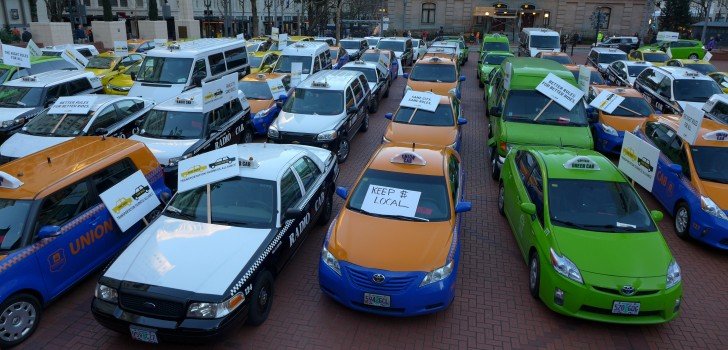France’s Constitutional Court has made the decision to uphold the law banning UberPOP, a ride service offering transportation from non-professional drivers. The French court dismissed all of the arguments put forth by Uber and stated that contested parts of the new law conformed with the country’s constitution.
Further legal proceedings could implicate Uber executives Thibaud Simphal and Pierre-Dimitri Gore-Coty for conducting the service in France illegally.
In the summer of this year, France witnessed riots and blockaded streets by upset taxi drivers, who contended that UberPOP’s service was stealing their business. UberPOP does not require driver training of its employees in contrast to the UberX service, which is still legal in France.
Similar grief has been voiced by taxi drivers in the U.S. In St. Louis, Missouri authorities moved to restrict the use of ride-sharing services like Uber, with Uber representatives pointing to the entrenched interests of the taxi industry as cause for such actions. Uber cited U.S. antitrust law during its lawsuit against the city, but was denied its request for a temporary restraining order last week.
Uber’s efforts in New York City have seen New York Governor Andrew Cuomo champion their cause, against the wishes of New York City Mayor Bill de Blasio. De Blasio recently backed down from his plan to limit the total number of Uber drivers within the city, which currently number around 26,000. That was not before Uber agreed to participate in a four month study of its effects on city traffic patterns, however.
De Blasio’s arguments often resorted to claims that the new service was causing problems of traffic congestion, but according to Jared Meyer of the Manhattan Institute for Policy Research, “Ridesharing represents 1% of all the cars coming into Manhattan every day. This is a small thing.”
In Belgium, the city’s taxi services decided to start their own ride-hailing app in competition with Uber—a similar result is playing out in New York City. Apps Way2Ride and Arro now offer customers the option to call yellow and green cabs with their smartphones. Taxi fares have been brought down by competition with Uber, along with prices for taxi medallions. In that sense, both taxi drivers and consumers have benefited.
As the ride-sharing firm continues to enter and disrupt new markets, government officials and taxi services alike will continue their rush to adapt to the situation.
Stay Connected